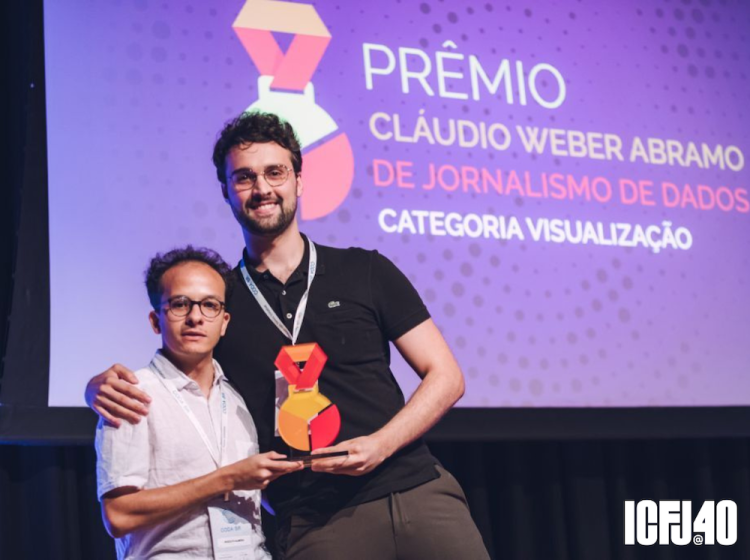Gabriel Zanlorenssi is data editor at Nexo Journal. He’s based in São Paulo, Brazil, and covers a variety of topics.
Through an ICFJ program, he received top-tier mentoring, published high-quality work and gained meaningful experience inside The Wall Street Journal’s newsroom.
This interview has been edited slightly.

How have you been involved with ICFJ over the years?
I have been aware of ICFJ’s work for many years, but it was in 2024 that I became more closely involved. I received a fellowship to produce a special report on neglected tropical diseases as part of the 2024 News Corp Media Fellowship for Digital Innovation. After that, I was selected to work for two months with The Wall Street Journal’s graphics team. It was one of the best professional experiences I’ve had so far.
What was the biggest outcome from participating in the program?
During the first stage of the fellowship, I produced a report on neglected tropical diseases. This was a topic I had wanted to cover for a long time because the media gives little attention to the suffering these diseases cause for affected populations. However, the more I researched, the more I realized how complex it would be to address this topic with data, in the way I wanted to.
The fellowship provided the perfect opportunity for this, not only because of the resources but also because of the mentorship of Tom Meagher. He helped me deal with challenges and situations I hadn’t encountered before in my career. I usually work with data and infographics, and I had no experience with interviews, for example. As I told Tom several times, this was a project where I didn’t want to produce just an adequate result but something I would be proud of. I was pleased with the final outcome.
The second stage involved working with The Wall Street Journal’s graphics team. It was fascinating to observe both the similarities and differences. I worked on behind-the-scenes projects, developing tools and instructional materials. I learned a lot from my supervisor, Ryan Watts, and my colleagues, especially Carl Churchill, and I also had the opportunity to share my knowledge with them.
What kind of difficulties as a journalist have you faced in Brazil? If applicable, how has ICFJ helped alleviate or support journalists with these difficulties?
These are challenges similar to what journalists face, to varying degrees, in other countries. I can mention three of them.
The first is staying relevant at a time when people get their news through social media. This ties into the second issue: how to make journalism financially sustainable in the short, medium and long term. The third challenge is the hostility journalists face due to a polarized environment and aggressive public discourse. I know several colleagues who have left social media or even fallen ill because of this.
Initiatives like ICFJ’s help on all these fronts. Fellowships provide journalists with resources to produce relevant, high-quality content. The programs, even for those who do not receive fellowships, help with training and foster connections between journalists, to share experiences and learn from each other.
Why is it so important right now to provide the kind of support to journalists that ICFJ does, especially in Latin America?
Latin America is a highly diverse region but has a recent history of democracies in consolidation. The threat of authoritarianism is a constant issue in most of these countries. Journalism brings accountability, investigating the actions of authorities and holding them under control. ICFJ’s support is crucial for the survival of this essential service for the population.
What’s the most impactful/meaningful story that you’ve worked on in your career?
The story about neglected tropical diseases, developed as part of the fellowship, is the most special one so far. The idea was to focus on data, but I also managed to hear from researchers and people in affected communities, bringing a more human perspective to the numbers.
In second place, I would say covering the presidential elections, which take place every four years here in Brazil. This mobilizes the country significantly, involves a lot of work for us journalists, but the outcome of the coverage is very rewarding.
Why did you choose to become a journalist?
I have always been interested in communication, with the possibility of creating content and explaining concepts to audiences. However, my path into journalism was somewhat accidental.
I was doing a master’s degree in political science and used to post analysis with graphics on my social media. One of these posts caught the attention of my future boss, who invited me for a job interview for a position that was open at the newspaper where I still work today.
Over the years, I learned the more editorial and organizational aspects of the career through practice. Today, I am particularly interested in product development and innovation in journalism.